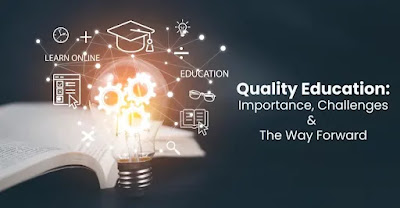The Challenges in Our Education Department
Education is the cornerstone of a prosperous society. However, our education department struggles to provide the quality of education our children deserve. There are several key reasons for this, and understanding them is the first step toward finding solutions.
1. Lack of Teaching Resources
One of the most pressing issues is the lack of teaching resources. Schools often do not have enough textbooks, computers, or even basic classroom supplies like paper and pencils. Teachers, who are the backbone of our education system, frequently have to spend their own money to buy these essential items. Without adequate resources, students cannot learn effectively, and teachers cannot teach to the best of their abilities.
2. Poor Implementation of Education Policies
Another significant problem is the poor implementation of education policies. While there are many well-intentioned policies designed to improve education, they often fail to materialize in the classroom. This failure can be due to various reasons, such as inadequate training for teachers, insufficient funding, or a lack of follow-through from the administration. As a result, the benefits of these policies never reach the students who need them the most.
3. Political Influence
Political influence also plays a detrimental role in our education system. Decisions about education are sometimes made based on political agendas rather than the best interests of students and teachers. This can lead to inconsistent policies and a lack of long-term planning. Schools become battlegrounds for political power struggles, diverting attention away from the essential task of educating our children.
4. Lack of Rewards for Teachers
There is a lack of rewards and recognition for teachers. Teaching is a demanding profession that requires dedication, passion, and hard work. However, teachers often feel undervalued and underappreciated. Low salaries, limited opportunities for professional development, and a lack of recognition contribute to low morale among educators. When teachers are not motivated or supported, it inevitably affects the quality of education they can provide.
5. Ineffective Transfer Policies
The transfer policies for teachers are also problematic. Transfers are often made based on political interests rather than merit. This practice undermines the stability and continuity of teaching staff in schools. When experienced teachers are moved around arbitrarily, it disrupts the learning environment and negatively impacts students. Effective transfer policies should prioritize the needs of the school and its students, rather than serving the interests of political figures.
Conclusion
Improving our education system is not an easy task, but it is crucial for the future of our society. By addressing these challenges—providing adequate teaching resources, effectively implementing education policies, reducing political influence, rewarding our teachers, and reforming transfer policies—we can create a more robust and equitable education system. It is essential for everyone, from policymakers to community members, to work together to ensure that every child has access to the high-quality education they deserve.
